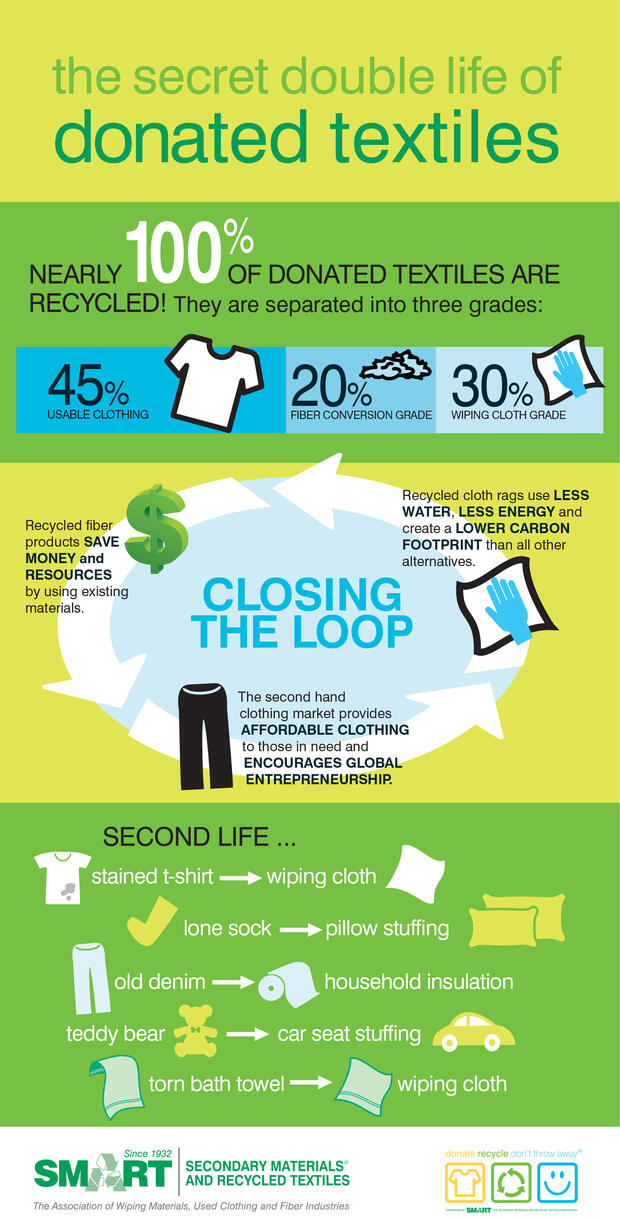Do you have clothing, shoes, or other textiles that you no longer wear or use, but still have plenty of life left in them? Don't throw them away!
Donate them to an organization that will find new owners or uses for these items. Search the MassDEP-supported Beyond the Bin Recycling Directory by type of material and your location. It will display a list of nearby locations where you can drop off unwanted clothing, shoes, and other textiles for donation to organizations that will resell, reuse, recycle, or repurpose them.
In addition, some companies and stores accept certain items for reuse or recycling. Please refer to the document posted here, Retail Return and Donation Options for a partial list.
